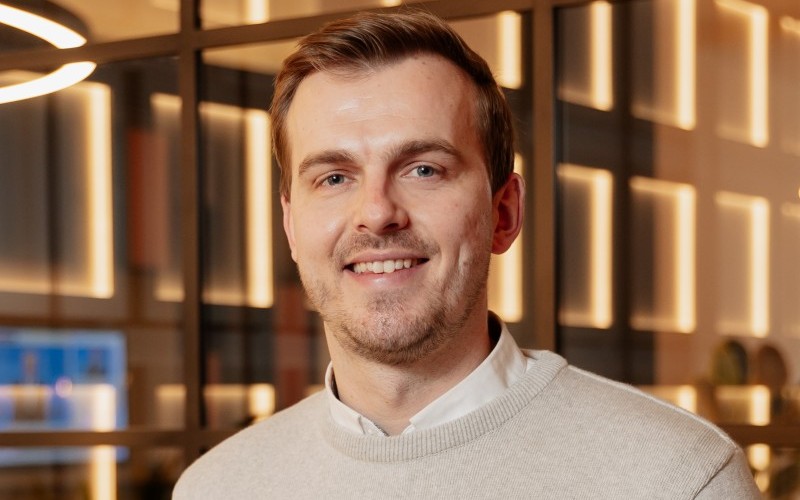The idea of businesses giving back to the community has worn many badges over the years: from corporate social responsibility to social value or impact, sustainability and ESG.
But the label matters less than the delivery itself, says Matt Richardson, head of leadership, skills and social impact at GM Business Growth Hub.
“Social value from a business perspective is still in its infancy: a lot of people don’t know what it is,” he tells BusinessCloud. “They may be doing it – they’ll employ apprentices, pay their staff the real living wage, provide training opportunities, engage with the local community – but often don’t measure it. It’s just part of their day-to-day operations.
“They shouldn’t get too bogged down in the names: what matters is that they are doing it. We want to create better employers and socially responsible businesses who think about how every decision is going to impact not just their bottom line, but staff, customers, suppliers and the wider community.
“If they naturally have those thoughts when they come to make decisions, they are going to be a far more successful organisation.”
Competitive advantage
Delivering social value should never be a tick-box exercise, he insists. “If it is seen as something separate, it will be treated as something separate. And the challenge within the [Greater Manchester] business community is to support in embedding it into every facet of an organisation,” he explains.
“If you don’t, you’re going to lose that competitive advantage: in generating revenue and customers, but also with your staff, your partnerships, your roots within the local community.”
Rather than adopting the traditional approach of volunteering days, perhaps it would be more impactful to think about how your skills might benefit other local organisations, Richardson says.
“You, for example, could match your skills in journalism to an organisation which needs help with comms but doesn’t have the financial resources to pay for things like that,” he tells me. “Or perhaps a financial team could offer their expertise.
“That would be a far better use of both the organisation’s and individual’s time… it’s about connecting the dots between organisation resources and community needs.”
£500m impact
GM Business Growth Hub launched in 2011 in Greater Manchester as the first organisation of its kind, providing the blueprint for a rollout of others across the country. Embedded across all 10 GM local authorities, it has played a direct role in helping more than 90,000 businesses thrive in a fair, inclusive and sustainable way, creating almost 15,000 jobs and safeguarding a further 12,000+.
Business Growth Hub has been a great journey – & there’s more to come
The Hub commissioned a report from Hatch which evaluated its 2018-21 programme phase and found it had generated a return on investment of over 10:1, making it amongst the highest gross value-added business support services in the UK. A total of £506 million of net economic benefit is expected to be generated by 2025.
Thirteen percent of client businesses are owned or managed by somebody from a diverse ethnic community – versus 6% nationally – while 28% have female founders (16% nationally) and 3% have someone declaring a disability.
“Through providing fully funded business support, we are naturally generating social impact,” says Richardson. “One of the key drivers in particular over the last couple of years has been the inclusive and accessible nature of business growth services, and ensuring that our services are reaching all communities in society across Greater Manchester.
“It’s not necessarily about what we’re delivering, but maybe how we’re delivering it – working with networks and communities to understand what those potential barriers are to accessing mainstream business support services, and how we can tailor our offerings to meet those needs.
“To build trust with communities, we may look at the terminology we use within marketing; the images that we use; and have to explain the rationale behind the questions that we ask of businesses.
“Historically, there have been barriers to access and uncertainty about why we are asking for company details and the level of degree – but ultimately it’s to measure the impact.”
Richardson believes that the 10:1 ROI – double what it reported previously – is down to such steps.
“Historically, we’ve provided business support, regardless of sector, regardless of culture, regardless of background, which is great to a certain extent – but we’ve now understood that that isn’t always necessarily enough for specific communities.
“There’s an element of ‘see me, be me’, understanding what the entry routes are into business support, understanding what those cultural barriers are, understanding what those community barriers are.”
How GC Business Growth Hub helped new businesses in Greater Manchester
Partnerships vital
Relationships are at the heart of the success of the Hub, which has deep local, social enterprise and university relations. Working alongside business membership organisations such as pro-manchester and individual business partners, it is seen as a key integrator.
“We couldn’t do it on our own. We’d be shooting ourselves in the foot if we were trying to engage with communities without partnerships,” says Richardson.
“Most roads from a business support perspective within Greater Manchester lead to the Business Growth Hub or [its parent organisation] The Growth Company in some shape or form. However, there are still pockets of communities that we don’t necessarily have those relationships with.”
One partnership he highlights is the GMCVO, which works to drive economic and social inclusion in Greater Manchester through effective collaborations; and also its offshoot BASE, the city region’s Black Asian & Minority Ethnic Social Entrepreneurs Network.
“Tapping into those communities from a knowledge base perspective is key – but from a partnership approach, it also builds that trust in the system,” he adds.
“The business ecosystem is huge within Greater Manchester in comparison to a lot of areas of the country. It’s a lot easier to navigate once you’re inside it – but how do we get to the businesses who aren’t involved? And why aren’t they involved?
“That’s where the partnership work really makes a big difference.”
Publicity and events – whether directly or with partners – also help to shine a spotlight on role models which can raise aspirations for communities. Alumni from its Greater Connected and Start Smart programmes were recently brought together to celebrate their successes and the challenges they have overcome.
Support services
The Hub has designated specialists who work with organisations on their social impact – both one-to-one and through cohort programmes and events. “Do you understand what social value is? How do you measure it? How do you report it? How can you improve and develop it?
“It might mean putting a social value strategy together; it might be as simple as aligning volunteering time with suitable organisations that need those skillsets and expertise. It might be procurement: helping organisations to understand the opportunities when they’re putting tender submissions together.”
Asked for one further piece of actionable advice for SMEs, he answers: “If you’ve got issues around talent acquisition or customer segmentation or supplier diversity, then build partnerships with communities that are going to help with that.
“You can’t be expected to know all the answers – that’s where communities can come into play. Infrastructure organisations that represent specific communities can also offer those insights that can help around your business operations.”
GM Business Growth Hub has been helping Greater Manchester businesses grow and thrive since 2011. You can read more about their impact here – Our Impact | GC Business Growth Hub
GM Business Growth Hub was part financed by the European Regional Development Fund (ERDF) 2014-2021, as part of a portfolio of ERDF-funded programmes designed to help ambitious SME businesses achieve growth and increase employment in Greater Manchester. Working in partnership with Greater Manchester Combined Authority, Department for Levelling Up, Housing and Communities (DLUHC), formerly the Department for Communities and Local Government and Greater Manchester Local Enterprise Partnership.
Don’t pack it in – how adapting after COVID helps businesses to thrive


